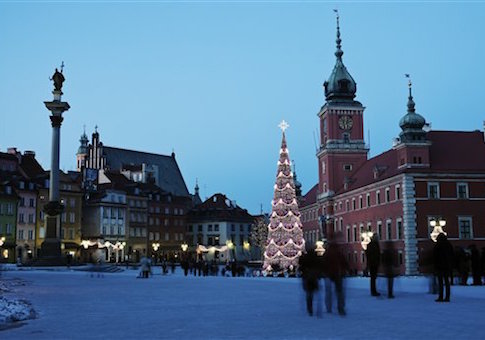Polish Deputy Defense Minister Tomasz Szatkowski told Polish media outlet Polsat that his country is considering a request for access to the NATO Nuclear Sharing program. Szatkowski did not identify what types of nuclear weapons Poland might request.
Shortly after the remarks were reported, the Polish Defense Ministry issued a statement denying it was contemplating such a request. Russia Today, a pro-Russian government media outlet, and London’s Guardian reported the remarks by the Polish deputy defense minister.
With a long history of antipathy toward Russia, Poland has been a stalwart NATO ally since joining the alliance in 1999, committing more financial resources to defense issues per capita than almost all other alliance members.
Pro-Western candidate Andrzej Duda was elected to the presidency in May. Shortly after taking office, Duda said that Poland wanted to be more than a NATO buffer zone, and that he viewed Poland as a critical part of NATO’s eastern frontier.
Duda has strong legislative support for his policies on NATO. Earlier this year the Polish parliament approved hosting at Redzikowo a U.S. ballistic missile defense detachment, part of a broader U.S. plan dating to the George W. Bush administration to deploy missile defense capabilities in Europe and Alaska to defend against a possible future Iranian ballistic missile attack.
Within NATO, only three nations, the United States, the United Kingdom, and France, possess nuclear weapons. Under the Nuclear Sharing program, however, NATO has based nuclear weapons at various times in Italy, Germany, Belgium, Turkey, and the Netherlands. At the November 2010 Lisbon Summit all 28 NATO members agreed that as long as there were nuclear weapons in the world the alliance would maintain its own nuclear weapons capabilities.
NATO-Russia relations continue to worsen over a series of events dating to Russia’s 2014 annexation of Crimea, which triggered a series of U.S. and European sanctions. More recent irritants in the relationship include the recent downing by Turkey, a NATO member, of a Russian su-24 supersonic bomber that flew briefly over its territory. That incident triggered vociferous denunciations from Russian President Vladimir Putin and a series of Russian trade actions against Turkey.
Additionally, NATO last week agreed, after years of procedural maneuvers, to extend formal NATO membership to Montenegro. That tiny nation has virtually no military capability, but the fact that NATO was prepared to expand its membership was viewed as a symbolic gesture aimed at Russia, enraging the Russian government which again responded with a series of threatening remarks.
Putin has made no secret of how Russia should respond to threats, real or imagined, against his nation. In June he said, "If someone threatens our territories, it means we will have to aim our armed forces accordingly at the territories from where the threat is coming."
